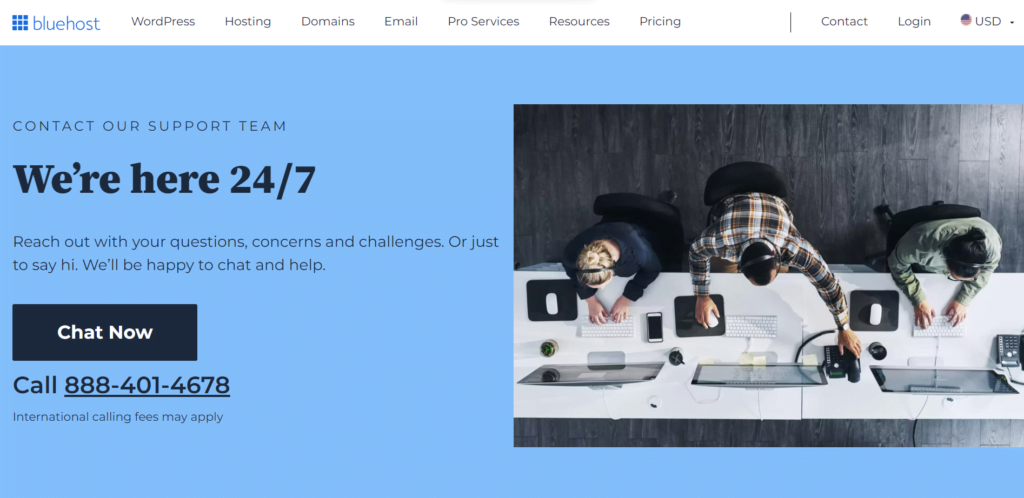How to Choose Web Hosting: 5 Steps
Choosing the right web hosting service is crucial for the success of your website. With so many options available, it can be overwhelming to make a decision. However, by following these top 5 tips, you’ll be able to find the perfect fit for your needs. Whether you’re a startup, blogger, or small business owner, this guide will help you navigate through the process and make an informed choice.
- Identify Your Needs and Understand Different Types of Hosting
- Compare Pricing and Features with Your Budget
- Evaluate Uptime and Reliability
- Pay Attention to Security Features
- Review Customer Support and User Experience
By following these top 5 tips, you’ll be well-equipped to choose the best web hosting service for your needs. Remember to consider your specific requirements, compare pricing and features, evaluate uptime and reliability, pay attention to security features, and review customer support and user experience. With the right web hosting service in place, you’ll have a solid foundation for your online presence.
1. Identify Your Needs and Understand Different Types of Hosting
When it comes to choosing the right web hosting service, one of the first steps is to identify your needs and understand the different types of hosting available. Assessing your website’s requirements is crucial in determining the type of hosting that will best suit your needs.
There are several different types of hosting options available, each with its own advantages and disadvantages. It’s important to have a clear understanding of these options before making a decision.
- Shared Hosting: Shared hosting is the most common and affordable option for beginners. In this type of hosting, multiple websites share resources on a single server. It’s a great choice for small websites or blogs that don’t require high levels of traffic or resources.
- VPS Hosting: VPS stands for Virtual Private Server. With VPS hosting, you still share a physical server with other websites, but you have dedicated resources allocated to your site. This provides more control and flexibility compared to shared hosting.
- Cloud Hosting: Cloud hosting is a relatively new concept that utilizes multiple servers working together to host websites. This allows for better scalability and reliability as resources can be easily adjusted based on demand.
- Dedicated Hosting: Dedicated hosting provides you with an entire physical server dedicated solely to your website. This offers maximum control, security, and performance but comes at a higher cost.
- WordPress Hosting: If you’re planning to build your website using WordPress, there are specialized WordPress hosting services available. These providers offer optimized servers specifically designed to enhance the performance and security of WordPress sites.
Find Out More:
Start a Blog with WordPress: 2023 Complete Tutorial
Now that you have an overview of the different types of hosting available, it’s important to consider which option aligns best with your specific needs and goals. Factors such as expected traffic volume, resource requirements, budget, and technical expertise should all be taken into account.
For example, if you’re just starting out with a small blog or personal website and don’t expect high traffic volumes initially, shared hosting might be the most cost-effective choice. On the other hand, if you’re running a large e-commerce site with high traffic and resource-intensive applications, dedicated hosting or cloud hosting might be more suitable.

Best Providers for Each Hosting Type
It’s worth noting that some web hosting providers specialize in specific types of hosting.
- Shared and VPS Hosting: InMotion is a highly recommended provider known for its reliable service and excellent customer support.
- Cloud Hosting: A2 Hosting offers scalable solutions with great uptime rates.
- Dedicated Hosting: HostGator is a popular choice for dedicated hosting.
- WordPress Hosting: Bluehost is well-regarded for WordPress Hosting.
2. Compare Pricing and Features with Your Budget
Different web hosting providers offer various pricing plans, so it’s crucial to compare them based on your budget. Keep in mind that while some providers may offer discounted prices for the initial term, their renewal prices might be significantly higher. It’s essential to look beyond the introductory offers and consider the long-term costs.
The good news is that a lot of hosting plans are very affordable.
Good To Know
One web hosting service that stands out in terms of both pricing and features is Bluehost. They offer competitive pricing plans that cater to different needs and budgets. Their shared hosting plans start at just $2.95 per month, making them an affordable option for startups, bloggers, and small businesses.

In addition to considering pricing, it’s important to evaluate the features included in each hosting plan. Some key features to look for include,
- Storage space
- Bandwidth allocation
- Scalability options
Storage space determines how much data you can store on your website, while bandwidth allocation affects how much traffic your site can handle. Scalability options are crucial if you anticipate growth or expect fluctuations in website traffic.
When comparing different hosting providers’ features, it’s also worth considering any additional perks or bonuses they offer. Some providers may include free domain registration or SSL certificates with their plans, which can save you money and simplify the setup process.
3. Evaluate Uptime and Reliability
When it comes to choosing a web hosting service, uptime and reliability are two crucial factors that should not be overlooked. After all, the performance of your website depends on the server’s ability to stay online consistently and deliver your content to visitors. To ensure you choose a reliable web hosting provider, here are some tips to evaluate their uptime and reliability track record.
Uptime
Firstly, it’s important to understand what uptime means in the context of web hosting. Uptime refers to the amount of time that a server is operational and accessible to users. A good web hosting service will strive for high uptime percentages. 100% uptime isn’t possible, ideally 99.97% or higher. This means that your website will be available to visitors almost all the time, with minimal downtime for maintenance or technical issues.
Best Uptime
The best uptime we’ve seen is an impressive 99.99% guarantee from HostGator, which is the best you can hope for!
To assess a web hosting provider’s uptime guarantees, start by checking their official website or product documentation. Look for any information regarding their uptime percentage and any service level agreements (SLAs) they offer. SLAs typically outline the provider’s commitment to maintaining certain levels of uptime and may include compensation options if they fail to meet those commitments.
In addition to checking official information, it can also be helpful to look for customer reviews and testimonials about a specific web hosting service’s reliability. Search for feedback from current or past customers who have experienced firsthand how reliable the provider’s servers are. Keep an eye out for any recurring complaints about frequent downtime or slow loading times, as these could be red flags indicating poor reliability.
Reliability
Another useful indicator of a web hosting provider’s reliability is their infrastructure and data centers. Reliable providers often invest in state-of-the-art facilities with redundant power sources, backup generators, and robust network connections. These measures help ensure that even in the event of power outages or hardware failures, your website will remain online without interruption.
By evaluating a web hosting provider’s uptime guarantees, checking customer reviews, considering their infrastructure, and engaging with their customer support team, you can gain valuable insights into their reliability. Choosing a web hosting service with high uptime and reliability will give you peace of mind knowing that your website will be consistently available to visitors, helping your business thrive online.
4. Pay Attention to Security Features
When it comes to choosing the right web hosting service, security should be one of your top priorities. The online world can be a dangerous place, and you want to ensure that your website and customer data are protected. That’s why it’s important to pay attention to the security features offered by different hosting providers.
Examples include:
- DDoS (Distributed Denial of Service) Protection
- Firewalls
- Brute force defense
- Server hardening
Other security features to look out for, which may depend on the plan you choose, include:
- SSL Certificates – These certificates encrypt the data transmitted between your website and its visitors, ensuring that sensitive information such as credit card details or login credentials cannot be intercepted by hackers. Look for hosting providers that offer free SSL certificates or make it easy for you to install one.
- Domain Privacy – This keeps your personal information anonymous on the public WHOIS database, in order to reduce spam.
- Regular Backups: In the event of a server crash or a cyber attack, having recent backups of your website can save you from losing valuable data. Make sure that the web hosting service you choose offers automatic backups on a regular basis.
- Virus & Malware Scanning: Hackers are constantly finding new ways to exploit vulnerabilities in websites, so it’s important to have a hosting provider that regularly scans for malware and takes proactive measures to protect against potential threats.
Good To Know
In addition to above specific security features, it’s also worth considering the overall reputation and track record of the hosting provider when it comes to security. Look for reviews and testimonials from other users to get an idea of how well they handle security issues.
By paying attention to these security features and considering the reputation of the hosting provider, you can ensure that your website is well-protected against potential threats. Don’t compromise on security when choosing a web hosting service – it’s better to invest in a reliable and secure provider from the start than to deal with the consequences of a breach later on.
5. Review Customer Support and User Experience
When choosing a web hosting service, it’s important to consider the level of customer support and user experience they offer. Reliable customer support is crucial, especially if you encounter any technical issues or have questions about your hosting service. A responsive and knowledgeable support team can make all the difference in resolving any issues quickly and efficiently.
Before committing to a web host, we highly recommend that you:
- Browse its help center: Ideally, a web hosting service should offer multiple ways to contact its support team, such as live chat, email, or phone support. This ensures that you can reach out for assistance in a way that is convenient for you.
- Explore its customer forum: Are other users active and supportive? Are most issues marked as resolved?
- User experience: A user-friendly interface and intuitive control panel can make managing your website much easier. Look for hosting providers that offer a demo or trial period, so you can test out their platform before committing.

To evaluate the quality of customer support, start by researching the hosting provider’s reputation. Look for reviews and testimonials from other customers to get an idea of their experience with the company’s support team. Pay attention to how quickly the company responds to inquiries and whether they provide helpful solutions.
Additionally, consider the overall performance and speed of websites hosted by the provider. Slow loading times can negatively impact user experience and result in lost visitors. Look for hosting services that prioritize speed and utilize caching technology to optimize website performance.
Choosing Best Web Hosting Service: Summary
In conclusion, choosing the right web hosting service is crucial for the success of your website. By following these top 5 tips, you can make an informed decision that aligns with your needs and budget.
Firstly, it is important to identify your needs and understand the different types of hosting available. Determine whether you require shared hosting for a small blog or a dedicated server for a high-traffic e-commerce site. This will ensure that you choose a hosting service that meets your specific requirements.
Secondly, compare pricing and features with your budget. While it may be tempting to opt for the cheapest option, consider the value you are getting for your money. Look for hosting providers that offer competitive pricing while also providing essential features such as ample storage space, bandwidth, and domain support.
Next, evaluate uptime and reliability. A reliable web host should guarantee a high uptime percentage, ensuring that your website remains accessible to visitors at all times. Look for providers with robust infrastructure and multiple data centers to minimize the risk of downtime.
Additionally, pay attention to security features offered by the web hosting service. Your website’s security should be a top priority, especially if you handle sensitive customer data or process online transactions. Choose a host that provides SSL certificates, regular backups, firewalls, and malware scanning to protect your website from potential threats.
Lastly, review customer support and user experience. A responsive and knowledgeable support team can provide assistance when needed and ensure smooth operation of your website. Read reviews and testimonials from other users to get an idea of the level of customer satisfaction provided by different hosting providers.
In conclusion, selecting the right web hosting service involves careful consideration of your needs, pricing options, reliability, security features, and customer support. By following these top 5 tips, you can make an informed decision that sets your website up for success in terms of performance and user experience.















